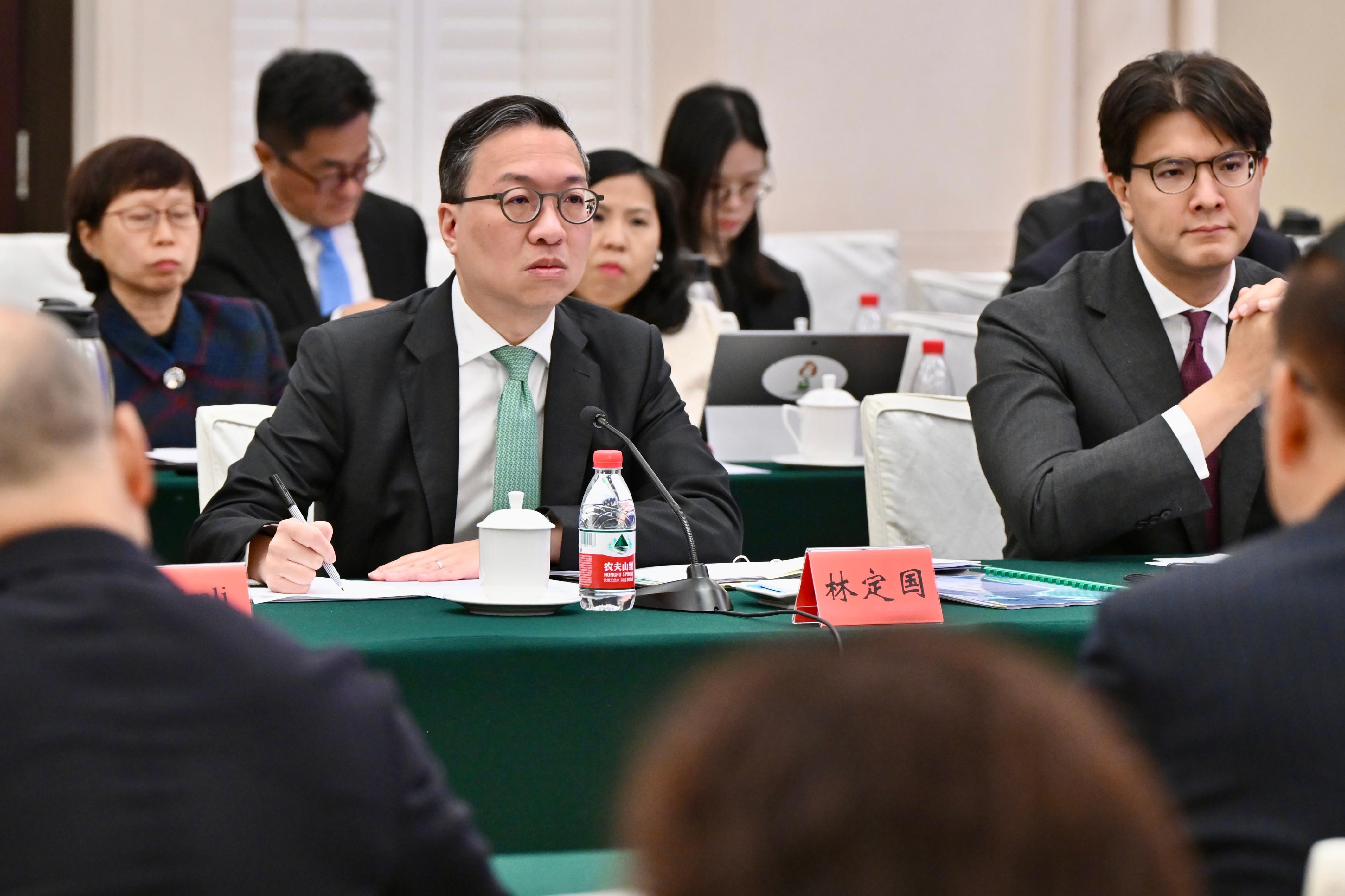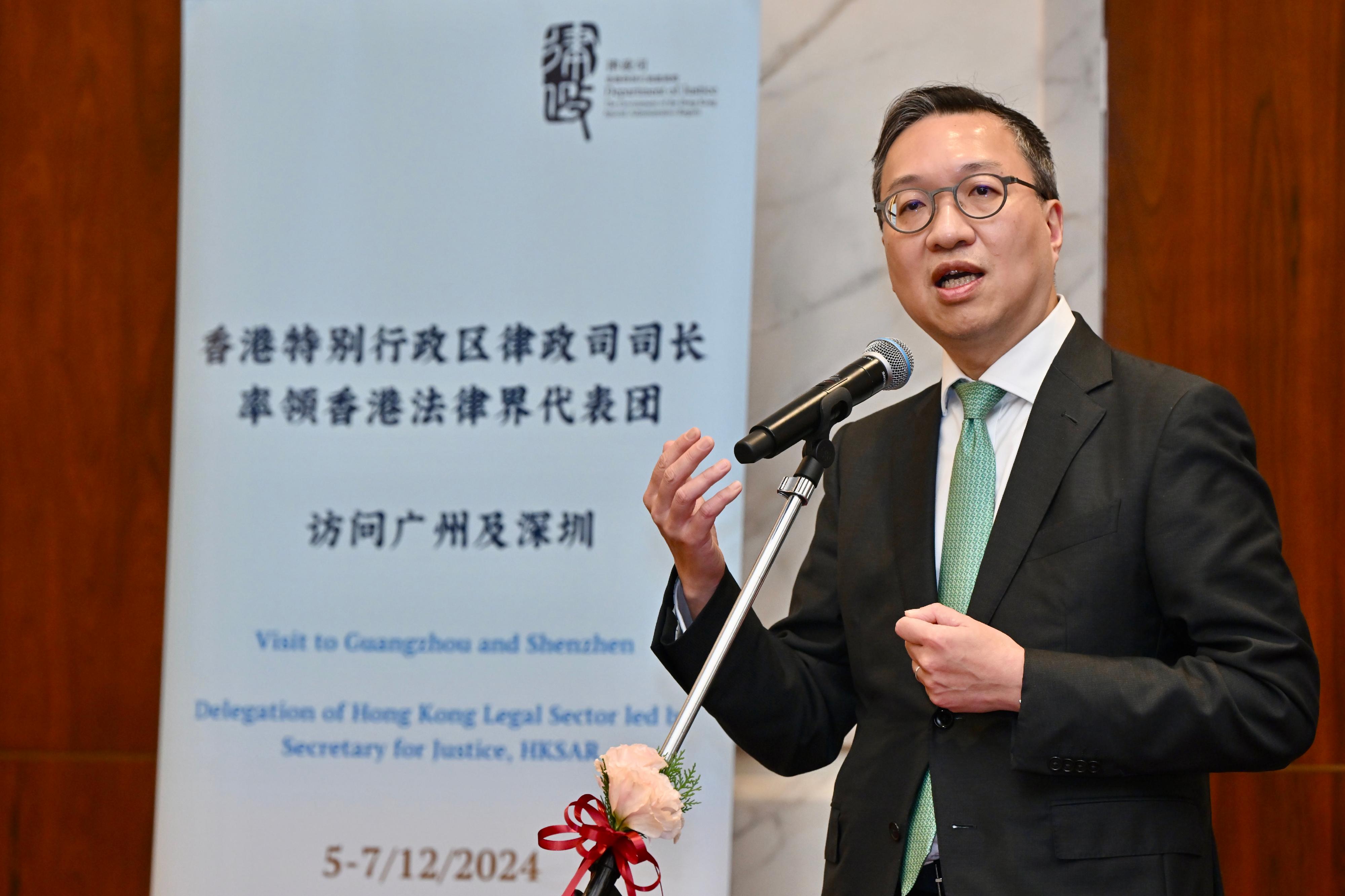SJ leads delegation of Hong Kong foreign-related legal talent to Guangzhou to begin visit to Mainland cities of GBA (with photos)
The Secretary for Justice, Mr Paul Lam, SC, leading a Hong Kong delegation of over 30 representatives of foreign-related legal talent from Hong Kong, began his visit to the Mainland cities of the Guangdong-Hong Kong-Macao Greater Bay Area (GBA) today (December 5). The delegation comprises office bearers of the Law Society of Hong Kong and the Hong Kong Bar Association, as well as representatives from local, international and registered foreign law firms, including various non-Chinese lawyers and GBA Lawyers. Upon arrival at the first stop of the visit, Guangzhou, the delegation visited the People's Government of Guangdong Province and met with representatives from the local legal and business sectors.
In the morning, Mr Lam called on the People's Government of Guangdong Province and met with Vice-Governor of Guangdong Province Mr Liu Guozhou. A meeting was held between the two sides, and was joined by the Department of Justice of Guangdong Province, the Guangdong Provincial Development and Reform Commission, the State-owned Assets Supervision and Administration Commission of the People's Government of Guangdong Province and the Department of Commerce of Guangdong Province, as well as the Hong Kong and Macao Affairs Office of the State Council, the Liaison Office of the Central People's Government in the Hong Kong Special Administrative Region, and the Hong Kong and Macao Affairs Office of Guangdong Province to learn about the latest developments in Guangdong Province and the GBA. They also exchanged views on the opportunities for further co-operation between the Hong Kong legal sector, and the Mainland authorities, legal and business sectors.
In the afternoon, Mr Lam and the delegation held discussions with representatives from the Guangdong legal and business sectors, including the China Council for the Promotion of International Trade Guangdong Committee, the Guangdong Lawyers Association, the Guangdong Association of Enterprises with Foreign Investment and the Guangdong Federation of Industry and Commerce. Through exchanges on common practical issues, the two sides explored foreign-related legal issues relevant to Guangdong enterprises going global, including corporate finance and the handling of foreign-related commercial disputes, and shared practical experiences in tackling those issues. The participants also explored how law firms in both places can further co-operate and provide high-quality legal services to jointly contribute to the construction of the country's foreign-related rule of law.
In the evening, Mr Lam and the delegation will visit one of the heritage revitalisation and conservation projects in Guangzhou, the Shamian Cluster, which is a national heritage conservation unit listed by the State Council.
Mr Lam and his delegation will depart for Shenzhen tomorrow (December 6) to continue their GBA visit.











